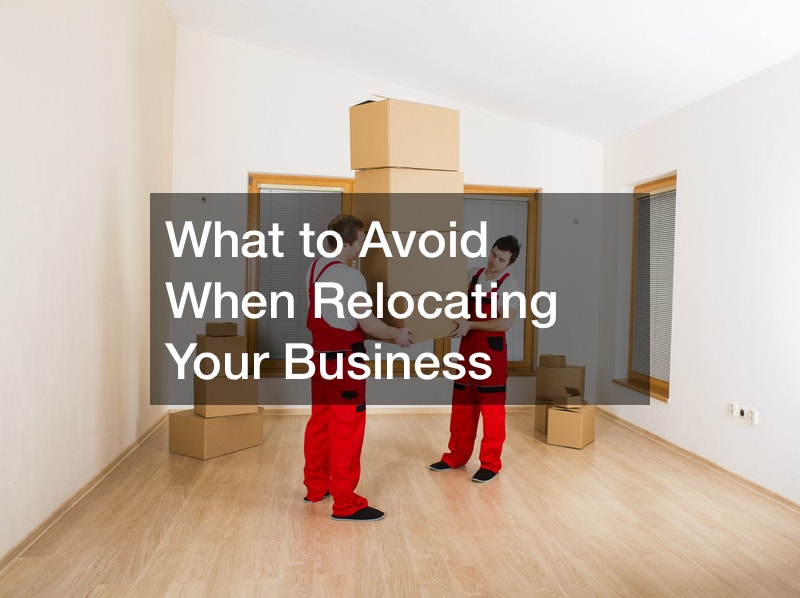
Starting a business from the ground up can seem like a complex thing, and it can be. Yet you can create a system that works for you with the right mindset, strategies, and approach. Even more, you can start a business that doesn’t end up in start-up failure statistics. The Chamber of Commerce says that the average start-up failure is 21.9% yearly–but you don’t have to end up there. If you have the passion to succeed, a clear vision for your business enterprise, and aren’t afraid of hard work and potential failure, it sounds like you have everything you need to launch a successful business. These tips should also help! Here is your ultimate guide to building a business from scratch.
1. Update Your Roof

If your business is in a physical location, the bulk of the work will be preparing this space. You can start by preparing your roof. Businesses often forget about roofing maintenance until it’s too late. Yet neglect and lack of maintenance is the leading cause of roof problems. By updating your roof, you can save on energy costs and give your business a professional look.
One of the updates you can consider is installing insulation. Insulation will reduce energy and utility costs. You can also choose reflective roof materials. The U.S. Department of Energy says a reflective roof material can remain 28 C cooler in warmer climates. But updates aren’t limited to functionality. Some roofing materials can give your business the ultimate lift with their elegance.
Regarding roof updates, it’s best to go professional instead of DIY. Understandably, you’re trying to limit costs as much as possible. A better strategy would be getting quotes from different roofing companies. Ensure the roofing contractor has a valid license and requisite permits. Work with a company that offers value for every dollar you pay.
2.Install Electrical Wiring
The small details matter when starting a business from the ground up. Apart from ensuring your business runs smoothly, you must ensure safety. OSHA expects you to provide a safe environment for your workers. That includes ensuring all your electrical wiring meets safety standards. If you’re renting a new location, hiring an inspector is best to address any problematic issues.
Your electrical layout will vary depending on your needs. For example, a fast-food joint requires specific electrical connections in the kitchen area. Another factor to remember is your equipment. Will you be using any specialized equipment? Where do you want it located? Getting qualified electrical contractors to do your electrical planning is the best approach. That is if you want to follow safety regulations.
When looking for an electrician, get one with experience in commercial spaces. They must have licenses and permits to work in your specific area. Just to be sure of their services, look for online reviews. What do former clients think of your electrical contractor? Also, ensure they give you project estimates before it commences.
3. Have Your Foundation Repaired

In the same way, your home foundation is important, so is your commercial foundation. It ensures the structural integrity of your commercial building. Besides, if you have valuable assets in your commercial property, you want to know they’re safe. Most buildings in the U.S. are older than 25 years. Thus, regular inspections (~every 3-5 years), repair, and maintenance are essential.
The best approach is to have a commercial buildings inspector do an inspection. Still, you can do your inspection. Are the walls or floor cracking? Can you observe any foundation damage around the foundation? Is there mold or mildew on the surface or crawlspace? Have you been having trouble opening and closing doors and windows? These could be all foundational problems that could jeopardize your business.
Sometimes caring for your foundation doesn’t mean expensive repairs. Regular maintenance can save you thousands of dollars in damage. Yet, if you notice a problem, it’s best to call a foundation contractor. Ensure they give you an estimate before any contract begins. A contractor can help you choose the best foundation upgrade you can make and the best materials.
4. Install a Water Heater
If your business requires a significant heated water source, install a water heater. It’s one of the ways to save costs when starting a business from the ground up. The first step is determining your hot water needs. For example, how many employees do you have? Equipment? Business size? Also, what type of fuel do you intend to use? For example, if you’re using propane, you’ll need a storage section.
When choosing a heater, use energy efficiency and cost as guides. Remember, even if a heater has a high initial cost, it’ll save costs if it’s energy-saving. An older report by the EPA found that commercial buildings spend 8% of their fuel on water heating. Yet by doing a tankless water heater install, you can save energy and space. The EPA recommends tankless heaters over batch heating.
When installing, ensure you follow building codes. The best way is to work with a professional. When you work with a professional, you reduce the risk of damage. Besides, your warranty period will be safer. It’s essential to ensure proper placement for optimal performance.
5. Get Business Insurance

Starting a business from the ground up is risky. That’s why you need business insurance. A study by Insureon found that 35.2% of businesses had an incident in the past year requiring an insurance claim. You can get general insurance coverage to protect your business. It covers you from personal injury, property damage, and marketing injury claims. Property insurance covers your inventory, property, and equipment.
Your choice of business insurance depends on many factors. For example, what types of incidents are common in your industry? If cyber security is the biggest risk, that’s what you should insure. Second, what’s your business size? The larger it is, the more comprehensive business insurance you’ll need. Since you’re starting up, be selective about what insurance to pay for by prioritizing.
Unless you have some background in insurance, it’s best to work with a local insurance service. They can help you navigate the often complex world of insurance. Even better, look for an insurance agent specializing in your business. Talk to them about your business and typical risks.
6. Develop a Marketing Strategy
One of the mistakes when starting a business from the ground up is not having a marketing plan. They usually don’t have enough resources or expertise to do marketing. Yet marketing isn’t reserved for big corporations. Digital marketing offers small businesses a chance to sell services at less cost. Consider ‘Google My Business (GMB) as an example. Google says that 76% of people who search ‘near me’ visit related businesses in a day. Do you have a GMB up yet?
Before hiring a consultant agency, consider your customer base. What are their demographics? According to your experience, where are you likely to find your customers? Are they on Facebook, Tiktok, or YouTube? Having intimate knowledge of your target market will help you craft a marketing plan.
If starting a business from the ground up, you must be reasonable about your marketing budget. Every dollar must bring returns. Thus, it’s best to be clear about what appeals to your ideal customer. For example, if they typically search for services, you can make a plan. You can create content, then optimize it for search engines.
7. Have Your Interior Painted

The modern customer wants to be wooed. They want to feel special. A survey by Salesforce found that 80% of customers value experiences as much as what you are selling. Interior design is one of the ways to sell an experience. An experience that says to the customer: we value you this much. A good place to start is having your interior painted. It’s preferable to get an interior painting company than DIY.
Did you know color affects moods? Some people associate white with cleanness, black with power, and red with action. So consider what mood you want to communicate when they visit your business. You probably want to communicate safety and tranquility if you’re in a massage parlor. If you’re a design company, creativity and so forth. It’s better to work with an interior designer as they may have more knowledge of colors and palettes.
Choose colors that match your brand colors. Painting is a favorite DIY for many, but a professional best does commercial painting. Communicate ahead of time and cost expectations. Work hand-in-hand to ensure they’re delivering what you expect.
8. Get Your Exterior Painted
Talking of appearances and experiences, your exterior matters too. So, paint it or repaint it. Besides, exterior painting could increase the value if you resell your commercial space. But exterior painting isn’t only for looks. Exterior painting protects your exterior surface from damage by weather and insects. Painting can also reflect sunlight, thus increasing energy efficiency. Before any painting can start, prepare the surface.
As with interior painting, it’s best to work with a professional. The first step will be determining which surface is being painted. Is it wood, metal, or stone? Surface preparation is the difference between a shady job and a long-lasting one. Even when starting a business from the ground up, it’s best not to compromise on quality. So, choose high-quality paint with a superb finish. Also, don’t forget the colors–choose a palette that fits your brand theme.
Since you are starting a business from the ground up, it’s best to keep costs down. Start by getting many quotes from service providers. Specialty providers, such as an exterior electrostatic painting service, may offer you value. It’s also okay to ask the contractor for timelines and cost estimates.
9. Repair Your Parking Lot
Your parking lot can be very telling. A well-maintained, decluttered parking lot gives a professional look. A survey by INRIX (a data company) shows that 40% of motorists avoid shops because of parking problems. You don’t want to miss potential revenue because of poor parking lots. Besides, a well-maintained parking lot is a safety improvement. The National Safety Council lists unsafe parking lots as a leading cause of death among older adults.
How do you make your parking lot safe, beautiful, and convenient? It’s simple–hire paving contractors. But before that, do an evaluation. How much parking lot damage do you have? Even if you’re starting a business from the ground up, it doesn’t mean you get low-quality materials. Research for long-lasting materials such as asphalt and cement. You can improve safety and organization by adding marks and stripping.
Since you’re looking forward to longevity, plan for maintenance from the word go. Work with a company to schedule regular maintenance. Paying small amounts over a longer period is easier than paying a lump sum at once. You can also remove clutter and debris regularly to prevent water blockage.
10. Install Security Features
Start-ups fail because of many reasons, and employee theft is one of them. A commonly quoted figure is 30%. That is, 30% of businesses fail because of employee theft or embezzlement, per the Better Business Bureau. If you are starting a business from the ground up, the last thing you need is security threats. Security includes both behavior and technology. You can install cameras, motion detectors, and password-protected doors with technology. For your data, have software data protection in place.
For physical safety, work with a local locksmith to ensure your entrance points are covered. When you have security features in place, you deter crime. An employee will be less inclined to stuff things away in the face of a camera. Even if they or an intruder steals, you’ll have evidence you can give law enforcement agencies. Remember, safety goes beyond gadgets–it’s also about behavior.
To bring it all together, there’s a lot you have to do when starting a business from the ground up. The above ten elements are just essential for physical businesses. If you can’t do everything, start with the elements with the highest stakes for your business. Good luck with your start-up!



